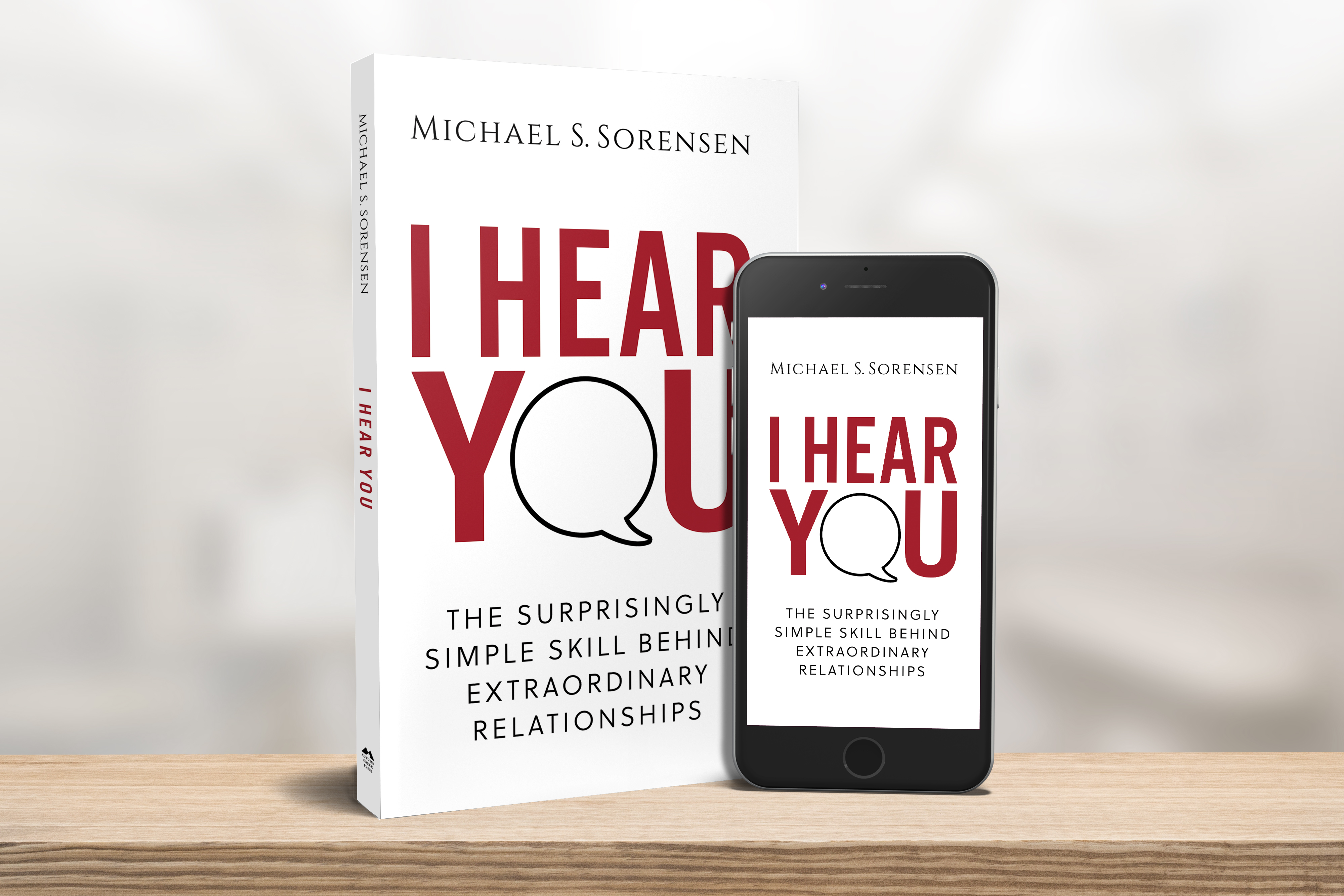
Have you ever felt like someone was listening to you but not really hearing you—or worse, not even fully listening?
Maybe they were more looking through you than at you, just kind of zoning out, all the while nodding, as if taking in what you were saying, but not. Or even worse still, maybe they weren’t giving you any signs of engagement, but rather alternating between glances up at you and glimpses down at their phone.
It’s rare these days to get someone’s full attention, and even more difficult to end a conversation feeling truly heard and understood—as if the other person not only got what you were saying but also empathized with your feelings.
These are the kinds of conversations that fuel us, soothe us, and build stronger bonds, and yet they’re not easy to come by.
To some degree it’s because we all have a tendency to get wrapped up in our own problems and caught up in our own emotions. But it’s also because this is a skill we’re never taught.
In all our years of formal education, no one ever explores the art and power of listening, understanding, and validating other people.
And no one outlines what it looks, sounds, and feels like to communicate with focus and empathy so we can create the kind of deeply fulfilling connections that make everything in life feel more manageable.
I believe these are the kind of conversations that can change and even save lives.
When we feel heard and understood, we feel calmer, more confident, and more comfortable with our own feelings—which means we’re less apt to fall into self-destructive patterns as a means to escape them.
We also feel closer to the people who are validating us, since we know we can trust them and truly let them in to our complex inner workings.
That’s why I’m excited to share with you Michael Sorensen’s powerful new book I Hear You: The Surprisingly Simple Skill Behind Extraordinary Relationships.
I consider myself a highly empathetic person, who naturally seeks to understand and validate others, and yet I still found this book to be tremendously valuable.
In just 137 pages, Michael has outlined everything we need to know to communicate empathetically, both in personal and professional relationships, which will enable us to:
- Strengthen our connections
- Minimize conflict and unnecessary drama
- Provide support and encouragement when we don’t know how to fix other people’s problems
- Help more than we could by offering unsolicited advice
- Create relief in conversations that may have otherwise felt tense
- Help others feel safe and loved
- Become the kind of person everyone wants in their life
As a sleep-deprived new mother navigating the consuming world of parenthood with an equally exhausted partner, I’ve had plenty of recent experience communicating poorly.
If you’re a parent, you’re perhaps familiar with the frustration and resentment that can quickly build up as you’re establishing how you and your partner will carry this joyful-yet-heavy new load together.
It’s easy to fall into blame mode when you’re juggling more than feels manageable and sifting through a range of messy emotions, with only brief windows of relief.
I’ve ended many a conversation feeling both annoyed and guilty, and consequently, less connected to my partner than usual—at a time when I’d rather be basking in shared bliss.
But Michael’s book helped me see how he and I were invalidating each other, which kept us both stuck in frustration and defensiveness.
The crazy thing is that we both had good intentions and had no idea what we were doing to so consistently inflame each other. Our hearts were in the right place, but we constantly felt like we were saying the wrong things and just getting each other more upset.
Michael’s four-step validation method may be simple, but it’s powerful because it enables us to provide to the people we love the one thing we all want most: the comfort of understanding.
It won’t solve all of our problems or give us the power to solve everyone else’s, but it will help us create relief instead of adding to a growing sense of tension.
It won’t eliminate differences of opinion, but it can help us learn to hold another’s without invalidating our own.
I especially appreciate that Michael peppered the book with real-world examples to help us apply this formula in varied situations. It’s easy to understand something intellectually but far more difficult to put it into practice, especially when emotions are running high. In tandem, the steps and examples shared in the book can serve as a wonderful blueprint for avoiding and defusing difficult conversations, even when navigating overwhelming feelings.
I don’t read many books these days because my time has become far more limited, but I’m glad I added I Hear You to my reading list. It’s a quick read that I know will have a long-lasting impact on my relationships and my life, and I suspect it can do the same for you.
If you’re interested in grabbing a copy, you can get one on Amazon here.
**Though this is a sponsored post, with an affiliate link, you can trust that I only promote products and services I truly believe in. As my review conveys, I Hear You fits the bill!
About Lori Deschene
Lori Deschene is the founder of Tiny Buddha. She started the site after struggling with depression, bulimia, c-PTSD, and toxic shame so she could recycle her former pain into something useful and inspire others to do the same. You can find her books, including Tiny Buddha’s Gratitude Journal and Tiny Buddha’s Worry Journal, here and learn more about her eCourse, Recreate Your Life Story, if you’re ready to transform your life and become the person you want to be.
- Web |
- More Posts












 Though I run this site, it is not mine. It's ours. It's not about me. It's about us. Your stories and your wisdom are just as meaningful as mine.
Though I run this site, it is not mine. It's ours. It's not about me. It's about us. Your stories and your wisdom are just as meaningful as mine.